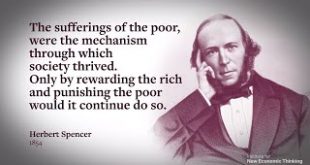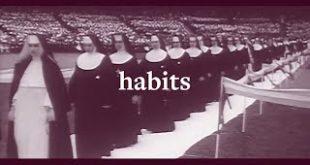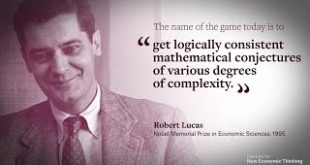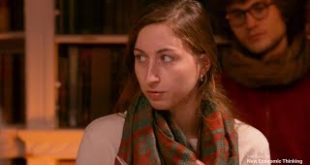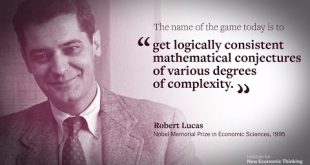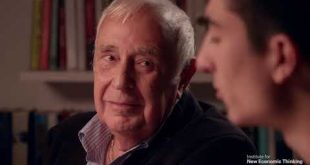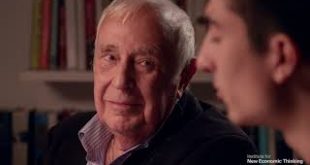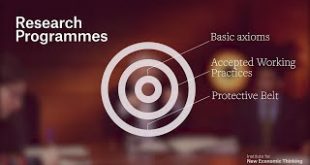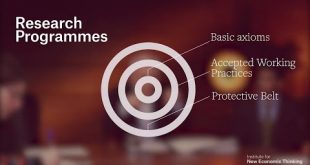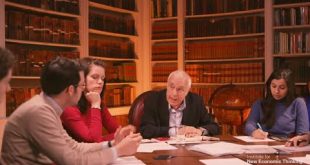In 1983 University of Chicago economist George Stigler proclaimed “The economist doesn’t need ethics; only arithmetic. His task is to clear up social mistakes.” In this eleventh and final lecture in INET’s “How and How Not to Do Economics,” Robert Skidelsky takes a different view of ethics’ place in economics. INET sincerely thanks the Julis-Rabinowitz Family for their generous support, who named this series to honor the spirit of a great educator...
Read More »How Can Sociology Help Economics? | How & How NOT to Do Economics with Robert Skidelsky
In economics the key behavioral idea is individual self-interest. In sociology it is the social “norm.” The first abstracts from society. The second presupposes it. In this seventh lecture in INET’s “How and How Not to Do Economics,” Robert Skidelsky looks at economics’ relationship with sociology. INET sincerely thanks the Julis-Rabinowitz Family for their generous support, who named this series to honor the spirit of a great educator and economic...
Read More »Models and Laws | How & How NOT to Do Economics with Robert Skidelsky
How do economists seek to establish their so-called laws? What is the scientific status of such laws? Are they always valid or merely useful rules-of-thumb? These, and more questions, are answered in this fifth lecture in INET’s “How and How Not to Do Economics, with Robert Skidelsky.” INET sincerely thanks the Julis-Rabinowitz Family for their generous support, who named this series to honor the spirit of a great educator and economic thinker, Uwe Reinhardt. For...
Read More »[DISCUSSION] Is Economics a Science? | How & How NOT to Do Economics | Robert Skidelsky
Following Robert Skidelsky’s lecture “Is Economics a Science?” he leads a discussion with students. INET sincerely thanks the Julis-Rabinowitz Family for their generous support, who named this series to honor the spirit of a great educator and economic thinker, Uwe Reinhardt. For nearly 50 years, the late Uwe Reinhardt was a beloved economist and professor at Princeton University. Known best for helping to shape critical discourse around healthcare markets, his biting...
Read More »Models and Laws | How & How NOT to Do Economics with Robert Skidelsky
How do economists seek to establish their so-called laws? What is the scientific status of such laws? Are they always valid or merely useful rules-of-thumb? These, and more questions, are answered in this fifth lecture in INET’s “How and How Not to Do Economics, with Robert Skidelsky.” INET sincerely thanks the Julis-Rabinowitz Family for their generous support, who named this series to honor the spirit of a great educator and economic thinker, Uwe Reinhardt. For nearly 50 years, the...
Read More »[DISCUSSION] Ethics & Economics | How & How NOT to Do Economics | Robert Skidelsky
Following Robert Skidelsky’s lecture “Ethics and Economics” he leads a discussion with students. INET sincerely thanks the Julis-Rabinowitz Family for their generous support, who named this series to honor the spirit of a great educator and economic thinker, Uwe Reinhardt. For nearly 50 years, the late Uwe Reinhardt was a beloved economist and professor at Princeton University. Known best for helping to shape critical discourse around healthcare markets, his biting wit and intellect...
Read More »[DISCUSSION] Ethics & Economics | How & How NOT to Do Economics | Robert Skidelsky
Following Robert Skidelsky’s lecture “Ethics and Economics” he leads a discussion with students. INET sincerely thanks the Julis-Rabinowitz Family for their generous support, who named this series to honor the spirit of a great educator and economic thinker, Uwe Reinhardt. For nearly 50 years, the late Uwe Reinhardt was a beloved economist and professor at Princeton University. Known best for helping to shape critical discourse around healthcare markets, his biting wit...
Read More »History of Economic Thought | How & How NOT to Do Economics with Robert Skidelsky
The main reason for studying the history of economic thought—says Robert Skidelsky in this ninth lecture in INET’s “How and How Not to Do Economics”—is to question the claim that economic knowledge is cumulative. Mainstream economics assumes that all useful economic knowledge from the past is incorporated in present theories. However, the substance and methods of economics have been interminably disputed ever since the start of the “science.” INET...
Read More »History of Economic Thought | How & How NOT to Do Economics with Robert Skidelsky
The main reason for studying the history of economic thought—says Robert Skidelsky in this ninth lecture in INET’s “How and How Not to Do Economics”—is to question the claim that economic knowledge is cumulative. Mainstream economics assumes that all useful economic knowledge from the past is incorporated in present theories. However, the substance and methods of economics have been interminably disputed ever since the start of the “science.” INET sincerely thanks the Julis-Rabinowitz...
Read More »[DISCUSSION] Models and Laws | How & How NOT to Do Economics | Robert Skidelsky
Following Robert Skidelsky’s lecture “Models and Laws,” he leads a discussion with students. INET sincerely thanks the Julis-Rabinowitz Family for their generous support, who named this series to honor the spirit of a great educator and economic thinker, Uwe Reinhardt. For nearly 50 years, the late Uwe Reinhardt was a beloved economist and professor at Princeton University. Known best for helping to shape critical discourse around healthcare markets, his biting wit and intellect...
Read More » Robert Skidelsky
Robert Skidelsky

